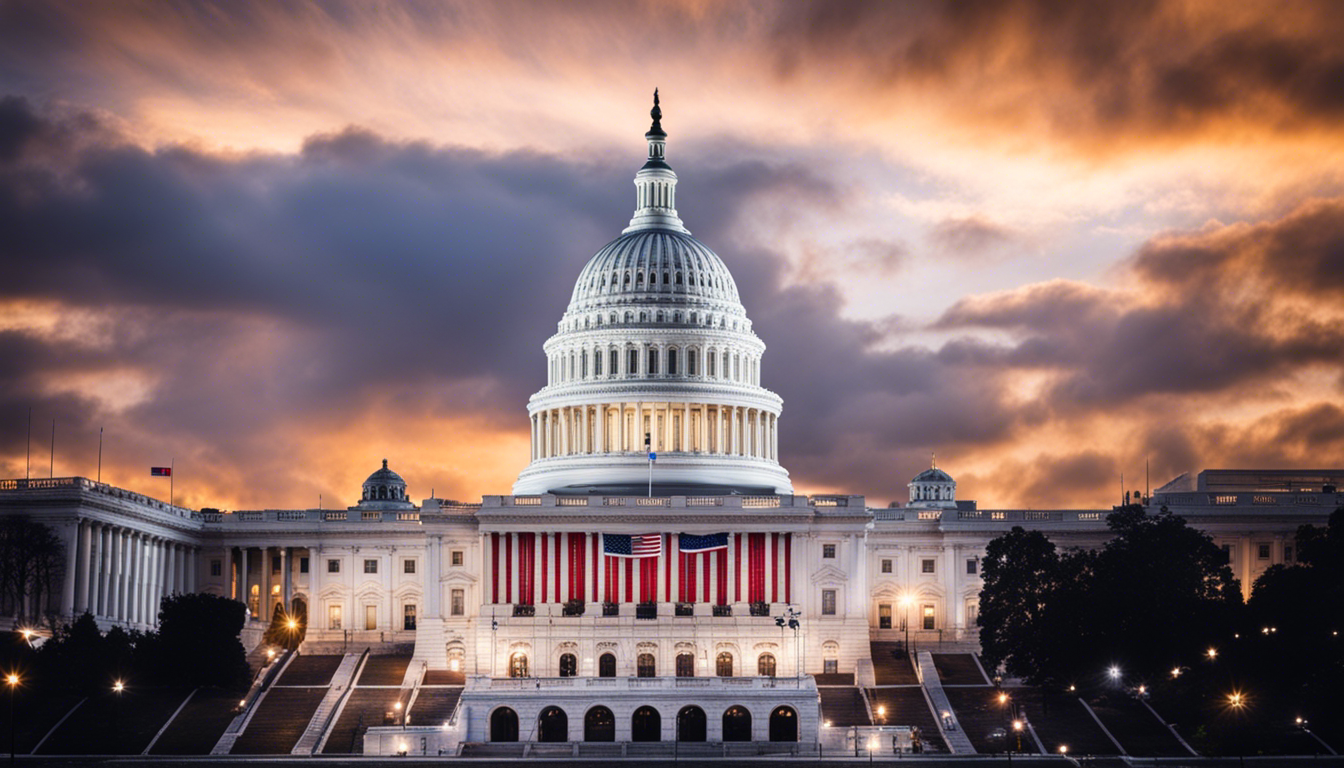
Government Shutdown Looms as Fear of Leadership Ouster Stalls Funding for Ukraine

As the United States approaches critical funding deadlines in early March, the House of Representatives is confronted with the looming possibility of a government shutdown. House Financial Services Chairman Patrick McHenry of North Carolina has warned that there is a "50-50" chance of a shutdown, with House Speaker Mike Johnson's political concerns being a determining factor in the outcome.
Funding Deadlines and Political Stalemate
The House is facing two funding deadlines - March 1 and March 8 - to ensure the continued operation of government services. Despite the urgency of the situation, the House of Representatives is in recess until February 28, prompting criticism from President Biden, who has been advocating for the passage of national security funding, particularly aid for Ukraine. The House is embroiled in a gridlock over funding allocations, and the impending deadlines are heightening the pressure for a resolution.
Leadership Struggles and Speaker's Decision
McHenry's remarks shed light on the internal dynamics within the House, revealing Johnson's challenges in leading a small and restive GOP majority. The fear of being ousted from the speakership appears to be a significant concern influencing the trajectory of government funding negotiations. McHenry emphasized that the fate of the funding and the possibility of a shutdown ultimately rest on the speaker's decision and willingness to navigate the complexities of the situation.
Challenges and Frustrations
The House Republicans' disarray following the departure of former Speaker Kevin McCarthy has further complicated the funding impasse. McHenry expressed bitterness over the succession process that led to Johnson assuming the speakership, highlighting the difficulties faced by the current leadership in steering through the challenges. The struggles within the House majority have become apparent, with failed rules and a lack of cohesion hampering the legislative agenda and decision-making process.
Urgency of National Security Funding
Beyond the internal political dynamics, McHenry underscored the urgent need for national security funding, particularly in providing support to Ukraine, Israel, and Taiwan. He emphasized that a significant majority of House members support the Senate-passed national security bill but pointed to Johnson as the current obstacle preventing its advancement. McHenry's assessment raises concerns about the potential repercussions of further delays in addressing critical national security priorities.
Parliamentary Maneuvers and Path Forward
As the funding standoff persists, McHenry outlined potential parliamentary maneuvers, such as a discharge petition or defeating the previous question, as options to circumvent the current obstacles. However, he also acknowledged the challenges and limited probabilities associated with these approaches, underscoring the complexities of the legislative process and the hurdles impeding swift resolutions.
Geopolitical Implications and Policy Imperatives
Amidst the internal wrangling, McHenry emphasized the broader geopolitical significance of providing increased military and economic aid to Ukraine, particularly in the wake of developments such as the death of Russian opposition leader Alexey Navalny. He stressed the imperative of standing in support of democratic values and international stability, urging swift action to address the escalating challenges facing the global community.
Disagreements and Political Discourse
McHenry also addressed criticisms and disagreements surrounding former President Trump's assertions and rhetoric, distancing himself from comparisons drawn between Trump's legal challenges and the persecution faced by Navalny. He voiced concerns about the impact of inflammatory rhetoric and emphasized the need for a measured and responsible approach to political discourse and legal proceedings.
Looking Ahead
As the House of Representatives stands at a critical juncture, the dynamics of leadership, political maneuvering, and the imperative of addressing national security priorities are poised to shape the trajectory of government funding decisions. The coming weeks will test the ability of the House to navigate internal divisions, fulfill its legislative responsibilities, and address pressing geopolitical imperatives.
Share news















